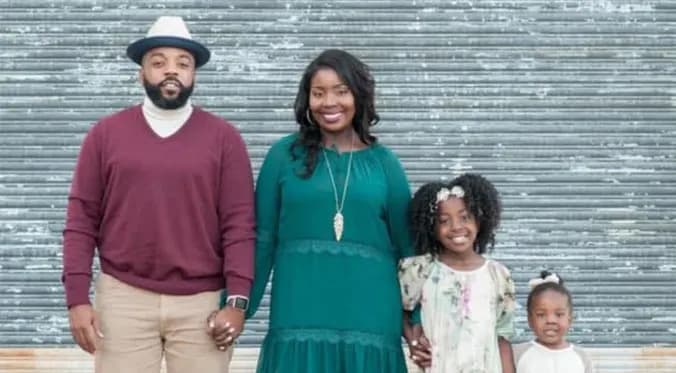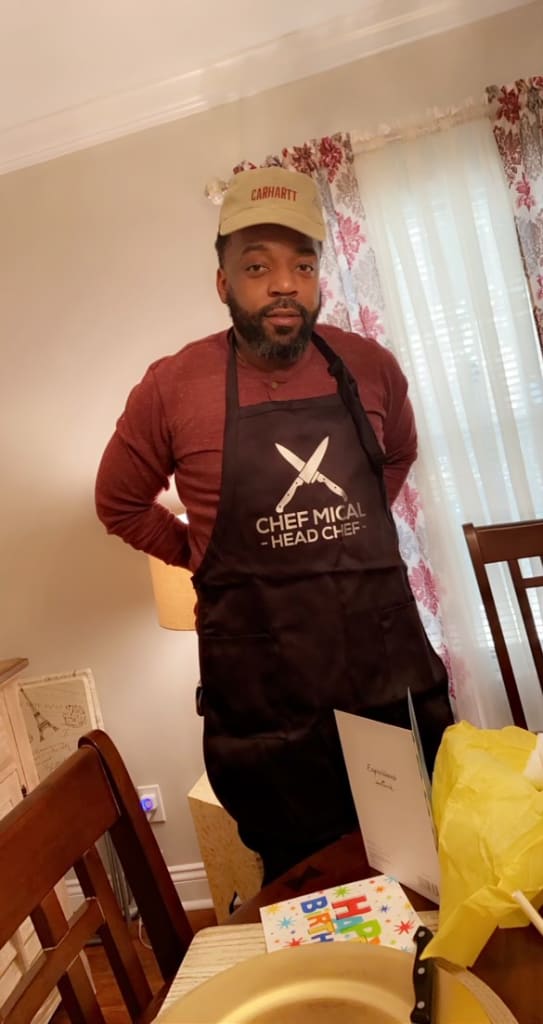Q&A With Prostate Cancer Survivor Mical J. Roy

Mical J. Roy, a young prostate cancer survivor, shares his experience and words of advice.
1. How and when were you diagnosed with prostate cancer?
In the summer of 2018, at the age of 37, I visited my primary care physician for my initial visit after moving to a new city, feeling the best I’ve ever felt. At this appointment for an annual physical, my primary care physician gathered pertinent family history information and, unbeknownst to me, elected to test my PSA levels as a part of my blood panel. The results came back and my PSA levels were elevated. This is when the process begins. My primary care doctor explained she wanted to put me on an antibiotic for 30 days to see if levels would come down. After 30 days, they did not come down. She then put me on another 30-day round of antibiotics, but the PSA levels had gone up from what they were initially. From here, she sent me to a urologist. I then had a biopsy on my prostate, and the results found that, in fact, I had prostate cancer. I feel that, in many ways, I am still completely stuck in that moment. November 1, 2018. I will never forget it.
2. What was most difficult part of your prostate cancer journey? What did you do to help yourself get through it?
The most difficult part of the journey was having to wear the bag after surgery and carry it around. That discomfort was the part I could completely do without. I listened to music, kept myself around my family and just chose to surround myself with those who I know truly cared about me and had my best interest at heart.
3. What would you say to people who think prostate cancer is an “old man’s disease”?
I was 37 and felt COMPLETELY HEALTHY when I found out, basically on accident that I had stage II aggressive prostate cancer. The old man’s disease stigma is a term NO MORE!
4. PCF recommends that Black men talk to their doctor about screening starting at age 40. What advice would you give to a Black man who might be hesitant to get checked?
I would tell any Black man, no matter their age, to please go get checked. This is a simple blood test that can detect elevated PSA levels—which help doctors to know if there is something going on with your prostate. It is better to know than not to know at all. The way I look at it, you want to have a baseline that you can measure those future tests by. This means, every year when you have PSA test, the numbers shouldn’t go up, and if they do, this lets you know to start paying closer attention. If you do have prostate cancer or anything else going on with you, it is always better to know than not at all.
5. How has your experience through prostate cancer changed you?
I believe the experience made me feel so much closer to God and it made me view myself through much more of a ‘warrior’ lens, in the sense that I no longer felt like there was anything I couldn’t do. It made me proud to share this story, especially when I knew that sharing would save someone else’s life, in any capacity.
6. What questions do you think that newly-diagnosed patients ask their doctor, early on? What things do you wish you knew then that you know now?
They should make sure they are comfortable with everything and ask their doctor to tell them everything in layman’s terms, or, in a way that can be easily understood by the common patient. A lot of times patients don’t feel educated enough to inquire about things regarding their own body. Listen, you ask that doctor any question that comes to your mind, and they will give you the best answer available. Make sure that if you need clarification on anything being explained, that you are assertive, and that you ask right away.
7. How can family and friends best support a man during prostate cancer?
Understand that men are complicated individuals when it comes to sharing or communicating. This process becomes even more complicated when the discussion is prostate cancer. Just simply let the man know that you are here when and if they ever need to talk, and give them the ability to just sit in silence while you sit next to them. It’s not always about talking, and many times, men simply don’t know what to say or how to say it. Give these men grace, and allow them to talk when they feel ready. This is the best way to support someone on this journey, in my opinion.
8. How are you doing now?
I am doing well. I cannot complain at all, and life post-operation (in 2019) has been very fulfilling and almost as if I never had surgery, which I feel is a testament to God’s grace and my urologist’s skillful hands :-)!










